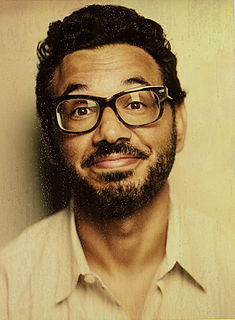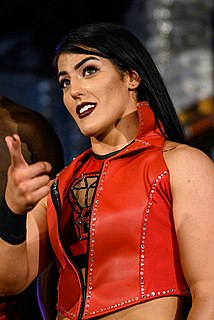A Quote by Al Madrigal
A lot of Latinos are like me: third generation, English speaking.
Quote Topics
Related Quotes
The biggest issue for me has been the language because I speak so much German now. I've had to focus on my English and find more words to describe what I want to say and also soften my tone. It was quite stiff from 20 years of speaking German, so when I started speaking more English, oh my god, my tongue was like: 'Argh'!
In 2014, I knew my English was not so bad, but I had no confidence in talking directly to an English-speaking reporter. I had to do a short interview with, I think, Reuters from France. I was so nervous. I practiced memorizing three sentences for two hours. But, I think that these kinds of interviews make me develop a lot, and that helps me.
I think it is not just the U.N. speaking, but the concept of a third party, a third party to a conflict speaking out. You know, sometimes saying, 'Stop, this is enough. This cannot be allowed to happen,' gives the victims and the people who are caught in that situation courage, encouragement, support.
You know, I was a kid who had difficulty speaking English when I first immigrated. But in my head, when I read a book, I spoke English perfectly. No one could correct my Spanish. And I think that I retreated to books as a way, you know, to be, like, masterful in a language that was really difficult for me for many years.
Most English speakers do not have the writer's short fuse about seeing or hearing their language brutalized. This is the main reason, I suspect, that English is becoming the world's universal tongue: English-speaking natives don't care how badly others speak English as long as they speak it. French, once considered likely to become the world's lingua franca, has lost popularity because those who are born speaking it reject this liberal attitude and become depressed, insulted or insufferable when their language is ill used.


































